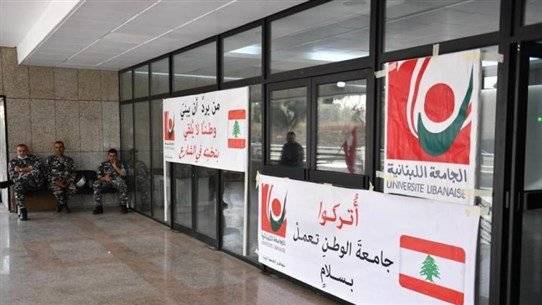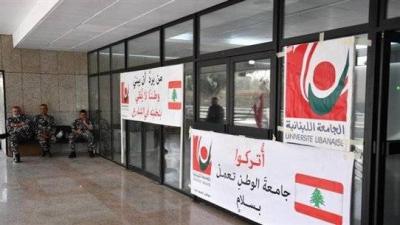This might be the first time the state pays attention to its national university by increasing its budget contribution, injecting some "oxygen" back into it to revive it a little. However, the path to the 500 billion Lebanese pounds added in the final formulation of Article 115, related to providing social aid to public sector employees and retirees, was not entirely straightforward. During the discussions in the sessions regarding the public budget, it was noted that the text received from the Ministry of Finance is "ambiguous" and can be interpreted to mean that the 500 billion pounds contribution is to cover previous decrees recently approved, which total 104 billion (half a salary for 6 months from January 2022 to June), 50 billion (incentive salary for September and October 2022 as a attendance and productivity allowance), 128 billion (full salary from July to December, inclusive), and 120 billion (hourly wage doubling for contractors, which has not yet been approved).
This confusion prompted, according to parliamentary sources, the intervention of several MPs to rephrase the text, particularly to clarify that the "500 billion" is allocated for operational expenses and is added to other contributions, raising the state's contribution to the university budget from 366 billion pounds (current contribution) to 1,268 billion.
To the original text of Article 115, the following was added: "An additional 500 billion Lebanese pounds shall be added to the previous contributions received by the Lebanese University, with the understanding that increments to faculty and staff salaries shall be deducted from this amount." The last sentence means that the additional third salary for the months of October, November, and December, totaling 63 billion pounds, will be deducted from the 500 billion, as previous contributions cover two salaries.
Additionally, 49 billion pounds will be allocated to the budget of the Faculty Staff Syndicate at the university, raising the budget to 150 billion and allowing for a fourfold increase in the medical service rates, akin to the State Employees Cooperative rates.
**The Fate of the Strike?**
Regarding the university and its fund, faculty members received, like their colleagues in the public sector, double their salary, which means the base salary multiplied by three, provided that the increase is not less than 5 million pounds and not more than 12 million. For the hourly wage of contracted faculty, it was also tripled.
Amid this development, will the General Assembly of University Faculty return from its open strike? The Executive Committee of the Contracted Faculty Association has called the General Assembly to a session to be held next Saturday morning in the grand conference hall at the Hadath University complex to present data, discuss recent developments, and make binding recommendations regarding the fate of the strike. They have also called on the Minister of Education, Abbas Halabi, to take responsibility by not allowing the violation of the special status of university faculty in all decrees issued by the Cabinet and laws issued by Parliament, ensuring that they are placed at their historically recognized level in the public salary scale.
According to the association's statement, the uniqueness of university faculty lies in the fact that they are not employees with a limited administrative schedule, as they do not perform their academic and research duties solely within the administrative working hours, but at all times within and outside the university campuses, and their contracts do not specify a timeframe but rather a clear academic workload.
The association also indicated that there are no specific deadlines for paying outstanding transportation allowances for attendance since last year and additional salaries for the months of July, August, and September, as well as the agreed-upon PCR assistance with the university administration a few months ago, and the previous dues for contracted faculty, employees, and trainers.
**Uneasy Satisfaction**
Meanwhile, discussions among faculty on their groups on social media did not reflect complete satisfaction regarding the parliamentary council's resolutions, as they see them as "necessary but insufficient, as we did not receive anything new other than previous decrees." Confusion prevailed among some, questioning how the payments would be made: through treasury advances or reallocations, whether the funds are indeed secured, and whether the 500 billion will suffice to operate the university. Concerns were raised about the judges' salaries, whether they will be paid according to the 8,000 price, which would widen the gap with the university faculty salaries or if they will be treated like other public sector employees.
Nonetheless, general indications suggest that faculty members are inclined to proceed with exams and academic work for the previous academic year, as the strike has practically been breached, while looking for other options to push for their rights in the coming phase. Some faculty members suggest that the discussion in the General Assembly session should not only focus on material demands for faculty but also address other issues such as the possibility of returning to in-person teaching, the university's rights to PCR funds, the university's budget and its independence, the impact of the crisis on the numbers of students and faculty, and other vital issues for the institution.




